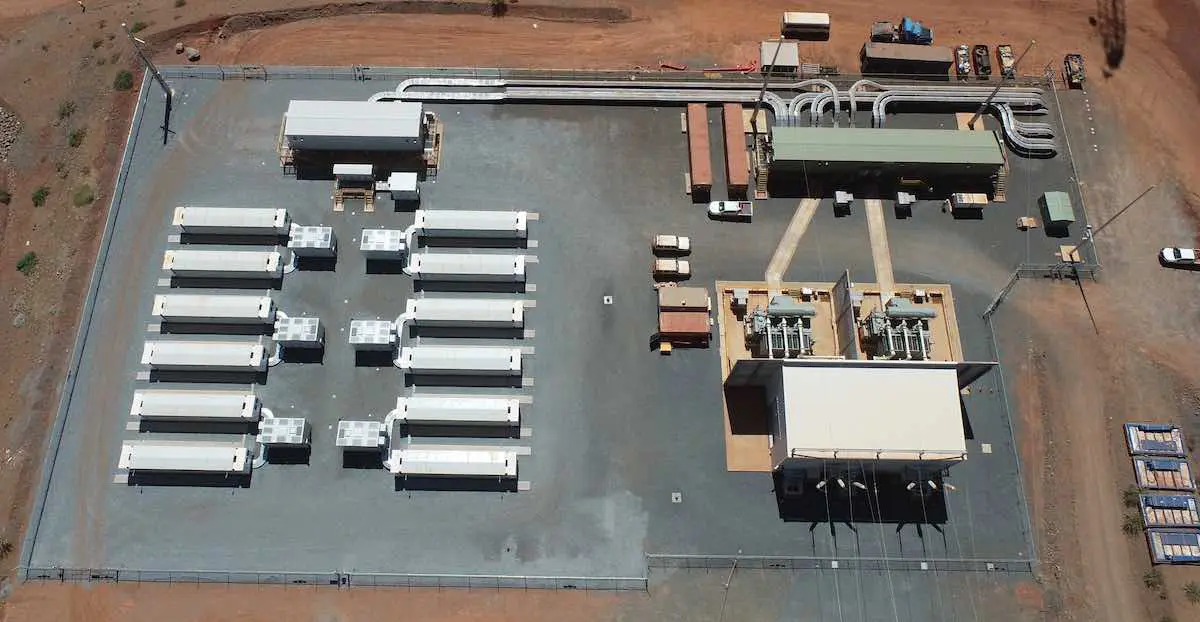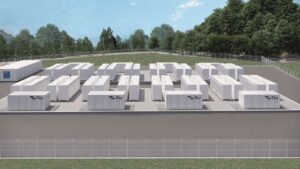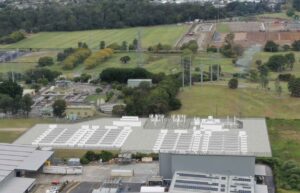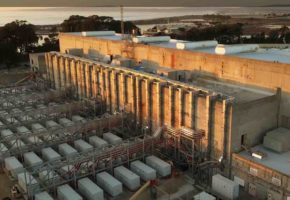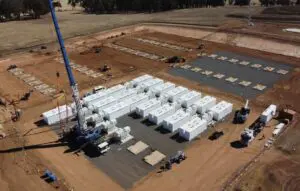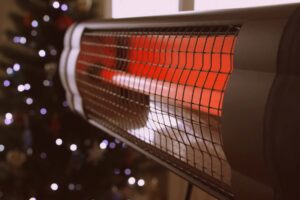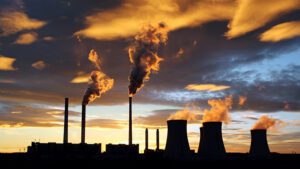Andrew Forrest’s iron ore and green energy juggernaut Fortescue Metals says it has commissioned its first two big battery storage installations at its Pilbara iron ore mines, and begun construction on its first big solar farm as it accelerates its switch to green energy.
The two battery storage installation – totalling 42MW and 13MWh – have been installed at two different Fortescue mine sites – North Star and Solomon – and are part of the Pilbara Energy Connect project, which aims to power the miner’s Pilbara iron ore operations mostly with renewable energy.
The batteries – using Hitachi and Kokam technology – have been installed and commissioned by Hybrid Systems Australia, a subsidiary of Pacific Energy, and will use millisecond-response capabilities to provide greater protection against load spikes and dips and ensure overall network stability.
The batteries’ primary role is for grid stability and support, providing spinning reserve backup to any gas generation outages or sudden changes in the solar output. That explains the relatively short storage duration (just 20 minutes at full capacity).
The batteries will also support Fortescue’s planned 150MW of nearby solar, with Fortescue announcing on Wednesday that it has begun construction of the 100MW North Star Junction solar farm near the new Iron Bridge mine.
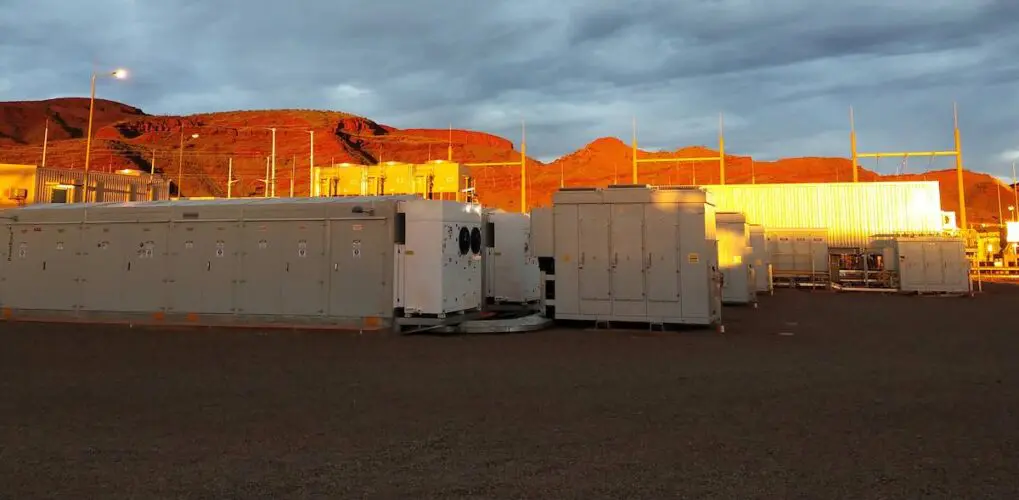
Fortescue already sources solar from the 66MW Chichester solar farm, which was the first big solar facility in the Pilbara, but that project is owned and operated by Alinta Energy, which also runs the Newman gas plant and the neighbouring Newman battery that has helped slash costs and improve reliability on that grid.
However, Fortescue is also planning a massive 5.4GW wind and solar project in the Pilbara that will ultimately power its entire operations in the area – plus some new green metals operations – with renewables.
FFI’s head of decarbonisation, Christian Heyning, said the company is “gearing up for significant additional investments … on additional green energy infrastructure.
“We haven’t taken [final investment decision] on those yet, but we will expect to do so in the next 12 months or so.”
Mike Hall, the executive director of Hybrid Systems, said that the battery project was one of the largest and most technologically advanced BESS projects the company had undertaken.
“Our BESS are built specifically for remote Australia’s harsh conditions and can be sized from 1MW to 200MW, which makes them ideal for large-scale mining applications where the objective is greater reliance on clean energy.”
Hybrid Systems says it also worked closely with Supply Nation accredited vendors, including electrical contractor, Boodjara Pty Ltd, and local electrical wholesalers, Myelec and D&W Electrical.
See RenewEconomy’s Big Battery Storage Map of Australia

